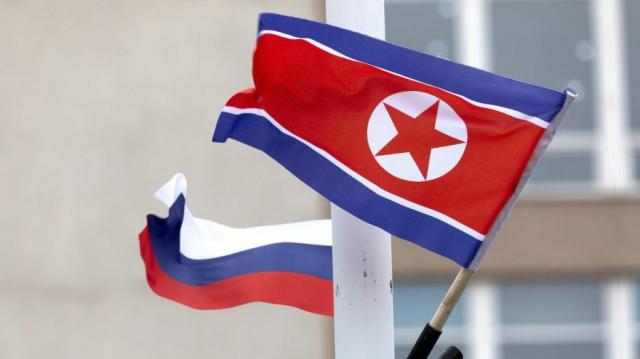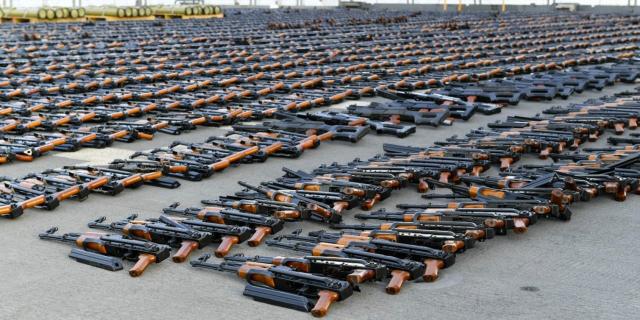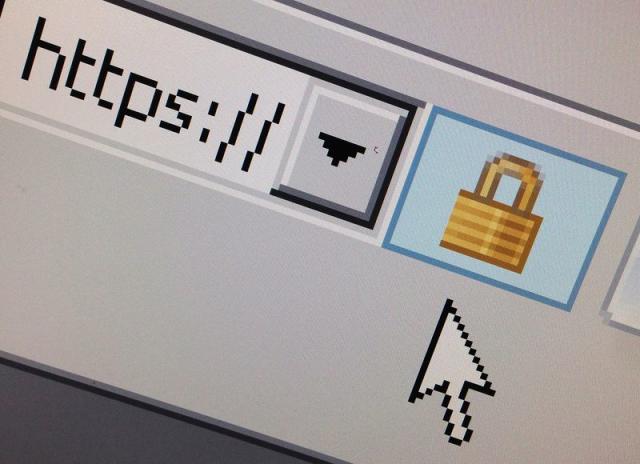World Geography And Politics Daily News | 16 Jul 2023

Views (125)

Russia investigating if North Korean test missile crashed in its waters
The Russian government is investigating whether a missile test-fired by North Korea on Wednesday ended up in its territorial waters in the Sea of Japan. Deputy Foreign Minister Andrey Rudenko said the country is checking the missile’s landing position, according to Russian state media agency TASS. “As far as I know, my colleagues continue investigating…

The Russian government is investigating whether a missile test-fired by North Korea on Wednesday ended up in its territorial waters in the Sea of Japan.
“As far as I know, my colleagues continue investigating this case together with the Defense Ministry but we have no clearly-expressed information so far that the missile fell in Russia’s economic zone,” he said.
The launch was denounced by world leaders, including from South Korea, Japan the U.S. and the G7.
“We call for a quick, strong, and unified response by the UN Security Council (UNSC). The frequency of North Korea’s repeated blatant violations of UNSCRs juxtaposed with the UNSC’s corresponding inaction because of some members’ obstruction is cause for significant alarm,” the group added.
The missile tested is believed to be the Hwasong-18, the most powerful missile technology North Korea has developed. It flew for 74 minutes on Wednesday, according to Japanese Chief Cabinet Secretary Hirokazu Matsuno, a record for a North Korean test.
Hwasong-18 missiles were first tested in the country’s last ICBM launch in April. The missiles use solid fuel boosters instead of liquid, which could make them easier to transport and more reliable.
The test came after North Korea earlier in the week alleged a U.S. spy plane flew over its waters. The U.S. has denied those claims.
“As a matter of international law, (North Korea’s) recent statements that U.S. flights above its claimed exclusive economic zone are unlawful are unfounded, as high seas freedoms of navigation and overflight apply in such areas,” State Department spokesman Matthew Miller said.
The Associated Press contributed to this report.
Mega Millions jackpot grows to $640 million, among highest in lottery game’s history
The Mega Millions top prize has grown again to an estimated $640 million after there was no winner of the lottery’s latest giant jackpot. The numbers drawn late Friday night were: 10, 24, 48, 51, 66 and gold Mega Ball 15. The estimated $640 million jackpot in the next drawing would only be distributed to a winner who chooses an annuity paid over 29 years.

The numbers drawn late Friday night were: 10, 24, 48, 51, 66 and gold Mega Ball 15.
The estimated $640 million jackpot in the next drawing would only be distributed to a winner who chooses an annuity paid over 29 years. Nearly all grand prize winners opt to take a cash payout, which for Tuesday night’s drawing is an estimated $328 million.
The jackpot is the seventh largest in the game's history, Mega Millions said in a statement.
Four tickets matched all five white balls to garner the second prize level in the drawing. A ticket sold in South Carolina included an optional multiplier making it worth $2 million. Two tickets in California and one in North Carolina also were second-tier winners, Mega Millions said.
Despite the game’s long odds of 1 in 302.6 million, players continue to purchase tickets as the size of the grand prize grows.
The last time a Mega Millions player hit the top prize was April 18.
Here's what nearly 10,000 rifles, 200 rocket launchers, and nearly 800,000 rounds of ammunition and other weapons seized by the US government looks like
The US government alleged that the weapons were being sent to Houthi forces, which have been fighting a United Nations-recognized government in Yemen.

The US government seized thousands of weapons in 2021 and 2023, court documents show.
Feds said the weapons are part of an Iranian smuggling operation supporting rebel forces in Yemen.
Photos show neatly piled rows of assault rifles, rocket launchers, and anti-tank guided missiles.
In 2021 and 2023, the United States Naval Forces Central Command intercepted four vessels sailing in international waters in the Gulf of Oman and the Arabian Sea.
On those ships were thousands of weapons and nearly 800,000 rounds of ammunition the US government believes are part of an Iranian smuggling operation to support rebel forces in the Yemen Republic.
"There is no plausible way these weapons and munitions could have gotten onto the vessels between Iran and Yemen except that the Islamic Revolutionary Guard Corps (IRGC) has continued a pattern of smuggling letha aid to Houthi forces in Yemen," a Department of Defense official is cited in the notice.
The US Navy intercepted four dhows — narrow ships that often operate without "transmitting an automatic identification signal," according to prosecutors — on May 6 and December 20 in 2021 and on January 6 and 15 this year. All four ships visited known IRGC ports and went through routes "consistent with previous IRGC smuggling operations," the DOD official said.
Altogether, US authorities seized nearly 10,000 various kinds of rifles, about 300 machine guns, 194 rocket launchers, more than 70 anti-tank guided missiles, and close to 800,000 rounds of ammunition, among other weapons.
A vessel, or dhow, named Al-Ghazal 1 was intercepted by the US Navy on December 20, 2021.
US authorities seized 1,438 Chinese-made Type-56 assault rifles and 220,00 rounds of ammunition from the Al-Ghazal 1.
On May 6, 2021, the US Navy encountered another vessel, Dhow X.
The government seized 2,556 Type 56 assault rifles, 35 Russian-made assault rifles, 194 Iranian-made rocket launchers, 183 general-purpose machine guns, 100 Chinese-made sniper rifles, 52 Iranian-made anti-materiel rifles, and 50 Russian-made anti-tank guided missiles.
Iranian-made rocket launchers that were seized from the Dhow X.
An example of the Iranian-made anti-materiel rifle, a weapon used against military equipment and structures, that was seized from the Dhow X.
An example of Chinese-made sniper rifles that were seized from the Dhow X.
On January 6, 2023, the US Navy intercepted Dhow Y. The vessel carried 1,918 Type 56 assault rifles and 198 Russian-made carbine rifles.
Less than two weeks later, on January 15, 2023, US authorities intercepted another vessel, Dhow Z, in the Gulf of Oman. The ship had 2,999 Type 56 assault rifles, 100 carbine rifles, 101 general-purpose machine guns, and 578,400 rounds of ammunition.
Rows of Chinese-made assault rifles are laid out for the photo op.
Iranian and Russian-made anti-tank guided missiles found on the Dhow X and Z.
Xi calls for 'solid' security barrier around China's internet
Chinese President Xi Jinping said China must build a "solid" security barrier around its internet under the supervision of the ruling Communist Party, in his latest call to safeguard online data and information. China must persist in managing, operating and ensuring access to the internet in accordance with the law, Xi said in instructions delivered to officials attending a two-day cybersecurity meeting in Beijing that ended on Saturday. "We must adhere to the Party's management of the internet

BEIJING (Reuters) - Chinese President Xi Jinping said China must build a "solid" security barrier around its internet under the supervision of the ruling Communist Party, in his latest call to safeguard online data and information.
China must persist in managing, operating and ensuring access to the internet in accordance with the law, Xi said in instructions delivered to officials attending a two-day cybersecurity meeting in Beijing that ended on Saturday.
"We must adhere to the Party's management of the internet and adhere to (the principle of) making the internet work for the people," state-run Xinhua news agency cited Xi as saying.
In the past decade, Xi has made preserving security a priority, with his concept of security covering everything from politics and the economy to the environment and cyberspace.
In 2015, China passed a national security law with a broader scope to include its cyberspace. A year later, a law was passed that contained requirements for security reviews and for data to be stored on servers in China.
In 2021, China rolled out regulations around so-called critical information infrastructure.
This year, lawmakers updated anti-espionage legislation to ban the transfer of information related to national security and broaden the definition of spying.
Navigating China's dense network of rules and laws on online data and information is not without risk for companies.
In April, U.S. consultancy firm Bain & Co said police visited its office in Shanghai and questioned some staff. The Financial Times, citing people briefed on the surprise visit, reported that the police also took away computers and phones.
Last year, regulators told China's biggest financial data provider Wind Information Co to stop providing offshore users with certain data, sources told Reuters at the time.
In 2021, authorities launched a cybersecurity investigation into ride-hailing giant Didi Global two days after it went public in the United States.
(Reporting by Ryan Woo; additional reporting by Beijing Newsroom; editing by Christina Fincher)
ISW: Putin wants to keep Wagner fighters, cut Prigozhin
Russian dictator Vladimir Putin hopes to keep the Wagner mercenary forces together under a new commander and cut the group's ties to Yevgeny Prigozhin, the Institute for the Study of War wrote on July 14.

In a July 13 interview, Putin told Russian news outlet Kommersant that he offered Wagner soldiers the opportunity to fight under a different commander in a meeting held June 29. Putin claimed that this meeting included Prigozhin and 35 other Wagner commanders.
Putin said he gave the private military company the choice of serving under a commander who has led Wagner troops for the past 16 months and uses the callsign "Seda."
In Putin's account, the 35 commanders nodded their agreement at this offer, while Prigozhin did not agree and did not see the other officers nod.
Putin's remarks correspond with the ISW's assessment that the Kremlin wishes to keep the Wagner forces cohesive and simply oust Prigozhin, rather than break up the Wagner Group or cut ties with the mercenary company altogether.
In the interview, Putin repeated "the absurd notion" that private mercenary groups are not active in Russia, the ISW wrote.
German foreign minister says there is no possibility of negotiations with Putin
German Foreign Minister Annalena Baerbock has rejected the possibility of negotiations being conducted with Russian dictator Vladimir Putin, whom she said was waging a cruel war of aggression in Ukraine.

German Foreign Minister Annalena Baerbock has rejected the possibility of negotiations being conducted with Russian dictator Vladimir Putin, whom she said was waging a cruel war of aggression in Ukraine.
When asked whether it is possible to hold talks with Putin, Baerbock answered "no."
"I wish we could come to an agreement. But at the moment, it's not about what we want, but about the fact that we need to face the truth... And this is a cruel Russian war of aggression," the minister said.
When asked whether she foresees the fall of the Putin regime in the near future, Baerbock replied that she does not have such information and does not know how long the war will last.
"I have no idea. This is exactly the point. We don't know when this war will end. We do not know what is happening in Russia. Because we are not dealing with a country that, like us, is fortunately democratic," she said.
It was reported on July 11 that the Federal Government of Germany had prepared a new package of military aid for Ukraine. According to the sources of the German publication Der Spiegel, a delivery of air defense equipment, infantry fighting vehicles, ammunition and drones worth EUR 600 million is planned.
Der Spiegel wrote that the most valuable item in this package may be the Patriot air defense systems and the missiles for them.
During the NATO summit in Vilnius on July 12, Ukrainian President Volodymyr Zelenskyy met with German Chancellor Olaf Scholz and announced an agreement on the supply to Ukraine of additional Patriot launchers and missiles for them from Germany.
Scholz said on July 14 that the value of arms supplies to Ukraine from Germany since the start of the full-scale invasion of Russia would reach a total of about EUR 17 billion by 2027.
As the chancellor of Germany noted, his country is second only to the United States in providing support to Ukraine, particularly in the military field.
0 Likes
